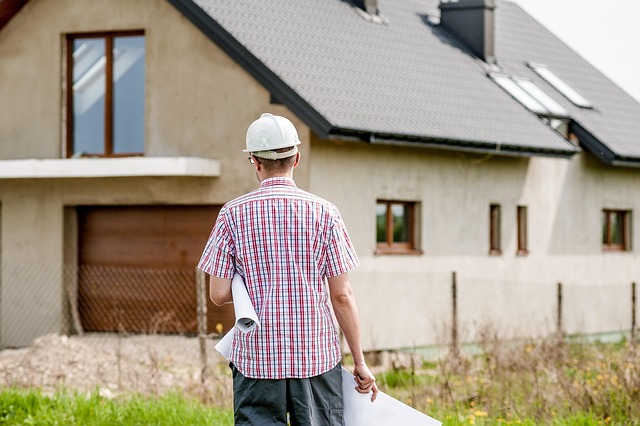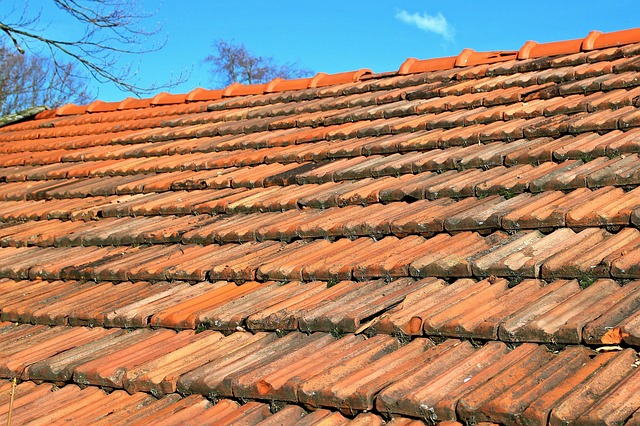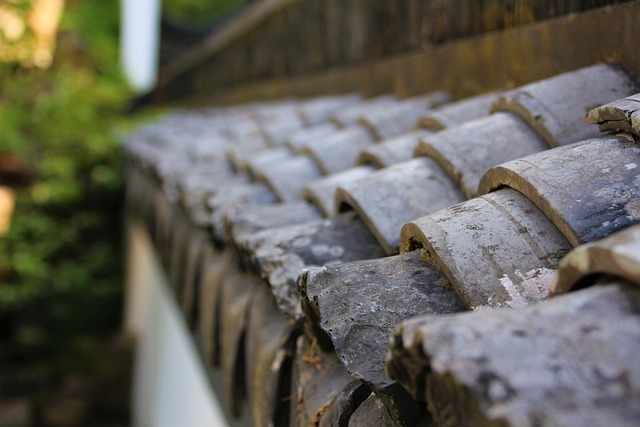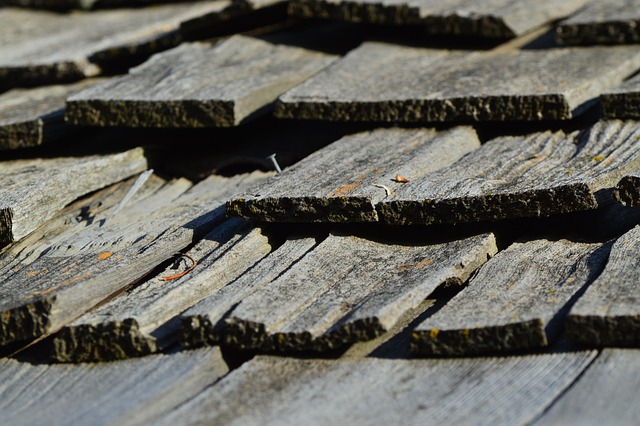Roofing is a critical component of home protection and energy efficiency. Understanding common residential roofing types (asphalt shingles, metal, tile, flat) and their benefits is essential. Certified roofing contractors base recommendations on climate, style, and personal preference, prioritizing durability, aesthetics, and maintenance. Hiring these professionals ensures quality, safety, and structural integrity during installations, repairs, or replacements using industry standards and best practices. Verifying credentials from organizations like the NRCA is crucial. Homeowners should prepare for inspections by clearing gutters, ensuring exterior lights work, and listing concerns. Complex issues require certified roofing contractors to prevent water damage, mold, and structural instability. They are adopting sustainable practices with green roofs and recycled materials, reducing environmental impact while enhancing energy efficiency. Case studies highlight their expertise in various projects. Regular maintenance, including annual inspections and cleaning, extends roof life and protects homes from hazards.
“Elevate your home’s protection with residential roofing specialists – the experts in safeguarding your sanctuary from the elements. This comprehensive guide delves into the intricacies of residential roofing, highlighting the significance of certified roofing contractors. From understanding common types and materials to unlocking the benefits of specialization, we explore key qualifications and certifications essential for quality and safety. Learn how these professionals facilitate maintenance, handle repairs, and embrace sustainable practices. Prepare for your roof inspection and discover successful case studies, ensuring long-term durability after professional installation.”
Understanding Residential Roofing: Common Types and Materials

Roofing is an essential component of any home, providing protection from the elements and contributing to energy efficiency. Understanding the common types and materials used in residential roofing is crucial when considering a repair or replacement. Certified roofing contractors often recommend options based on local climates, architectural styles, and personal preferences.
Common residential roofing types include asphalt shingles, metal roofing, tile roofs, and flat roofs. Asphalt shingles are popular for their affordability, ease of installation, and wide range of colors and styles. Metal roofing, known for its durability and longevity, offers excellent protection against intense weather conditions. Tile roofs, often seen in Mediterranean-style homes, provide a classic aesthetic appeal and superior heat resistance. Flat roofs, while less common, can be designed with modern materials to offer water tightness and low maintenance.
The Role of Certified Roofing Contractors in Ensuring Quality and Safety

When it comes to residential roofing, engaging the services of certified roofing contractors is paramount for ensuring quality and safety. These professionals possess the necessary expertise and training to handle various roofing tasks, from installation to repairs and replacements. Their certification attest to their proficiency in adhering to industry standards and best practices, guaranteeing both structural integrity and longevity of the roof.
Certified roofing contractors are equipped with the right tools, techniques, and knowledge to navigate the complexities of roofing work. They understand the importance of proper ventilation, flashing, and sealing to prevent leaks and moisture damage. Moreover, they prioritize safety measures, using specialized equipment and following strict protocols to safeguard themselves and your property during every stage of the project.
Benefits of Hiring Specialized Roofers for Your Home

Hiring certified roofing contractors brings numerous advantages to homeowners. Specialists in residential roofing offer a range of benefits that ensure your home’s protection and enhance its value. Firstly, they possess the expertise and training to handle complex roof repairs and installations, ensuring long-lasting durability and structural integrity. These professionals use high-quality materials and adhere to industry best practices, reducing the risk of leaks, damages, and future repairs.
Moreover, specialized roofers provide tailored solutions for various roofing styles and needs. Whether your home features a traditional shake roof, a modern metal awning, or a slanted tile design, certified contractors have the knowledge and tools to address specific requirements. They offer expert advice, personalized recommendations, and precise installations, guaranteeing a job well done that stands the test of time.
Key Qualifications and Certifications to Look for in a Roofing Specialist

When selecting a residential roofing specialist, it’s paramount to verify their qualifications and certifications. Look for professionals who are not just licensed but also certified by reputable organizations. Certified roofing contractors often demonstrate a higher level of expertise and adhere to industry standards, ensuring your roof is installed or repaired optimally. They may possess credentials from leading bodies specializing in roofing, such as the National Roofing Contractors Association (NRCA) or local equivalent.
These certifications signal proficiency in various aspects of roofing, including safety protocols, material knowledge, and installation techniques. Additionally, some certificates highlight specializations like solar roofing or energy-efficient practices, which can offer long-term benefits for your home. Always ask for evidence of these qualifications to ensure you’re hiring a truly competent and reliable roofing specialist.
How to Prepare for a Roof Inspection and Maintenance with Professionals

Preparing for a roof inspection and maintenance with certified roofing contractors is a crucial step in ensuring your home’s protection. Before their arrival, take time to clear any debris from your gutters and downspouts, as this facilitates easy access and provides a clear view of potential issues. Remove any obstructions around the perimeter of your roof, such as ladders or garden equipment, to allow for safe and unobstructed inspections.
Additionally, ensure that all exterior lights are operational, providing adequate lighting for the professionals to conduct a thorough assessment. Make a list of any concerns or specific areas you’d like them to check, like missing shingles or signs of water damage. This proactive approach will not only help in identifying and addressing problems early but also demonstrates your commitment to maintaining a robust roof system.
Common Roof Repairs and When to Call in the Experts

Roof repairs are a common home maintenance issue, and many homeowners might be inclined to tackle smaller fixes themselves. However, when it comes to larger or more complex problems, it’s crucial to understand when to call in the experts. Certified roofing contractors are specially trained to handle various roof repairs, ensuring the job is done correctly and safely. Common issues that may require professional attention include leaks, missing or damaged shingles, flashing problems, and structural damage caused by severe weather conditions like storms or hurricanes.
While minor leaks or simple repairs can often be managed with DIY kits, more extensive damage usually signifies a need for specialized knowledge and equipment. Ignoring significant roof issues can lead to further complications, such as water damage to the interior, mold growth, and even structural instability. Timely intervention by certified roofing contractors is essential to prevent these problems from escalating and to ensure the longevity of your home’s roof.
Sustainable Roofing Practices and Their Environmental Impact

Sustainable roofing practices are gaining popularity among residential property owners who prioritize environmental stewardship. Certified roofing contractors often offer eco-friendly solutions, such as installing green roofs or using recycled materials like recycled rubber shingles or metal from post-consumer waste. These choices not only reduce a home’s carbon footprint but also provide additional benefits, including improved energy efficiency and longer roof lifespans.
By adopting sustainable roofing methods, certified roofing contractors contribute to mitigating environmental degradation. Traditional roofing materials often require extensive resource extraction and production processes, generating significant amounts of waste and pollution. In contrast, sustainable alternatives are designed to be more efficient, durable, and recyclable. This shift towards greener practices not only benefits the planet but also ensures that homes remain comfortable and well-protected for years to come.
Case Studies: Successful Residential Roofing Projects

When it comes to successful residential roofing projects, case studies offer a window into how certified roofing contractors transform homes and protect them against the elements. These real-world examples highlight the expertise, quality materials, and meticulous craftsmanship that define top-notch roofing specialists. By studying these cases, homeowners can gain insights into the process, outcomes, and benefits of investing in professional roofing services.
From historic home renovations to new construction projects, each case study showcases unique challenges and innovative solutions. You’ll discover how certified roofing contractors assess existing structures, design custom solutions tailored to individual needs, and ensure long-lasting results that stand the test of time. Through these narratives, homeowners can appreciate the value of expert guidance, proper installation, and high-quality materials in creating a robust and aesthetically pleasing roof system.
Tips for Maintaining Your Roof Long-Term After Professional Installation

After professional installation by certified roofing contractors, maintaining your roof is crucial for extending its lifespan and preserving your home’s protection against the elements. Regular inspections are key; at least once a year, walk the roof (or hire professionals) to look for signs of damage such as missing or damaged shingles, flashing issues, or moisture intrusion. Promptly addressing these problems prevents further deterioration.
Additionally, keep your roof clean and clear of debris like leaves, branches, and pine needles, which can block gutters and drain systems. This ensures proper water flow, preventing water damage below. Consider a maintenance schedule with certified roofing contractors to stay on top of repairs, replacements, and preventative measures.
